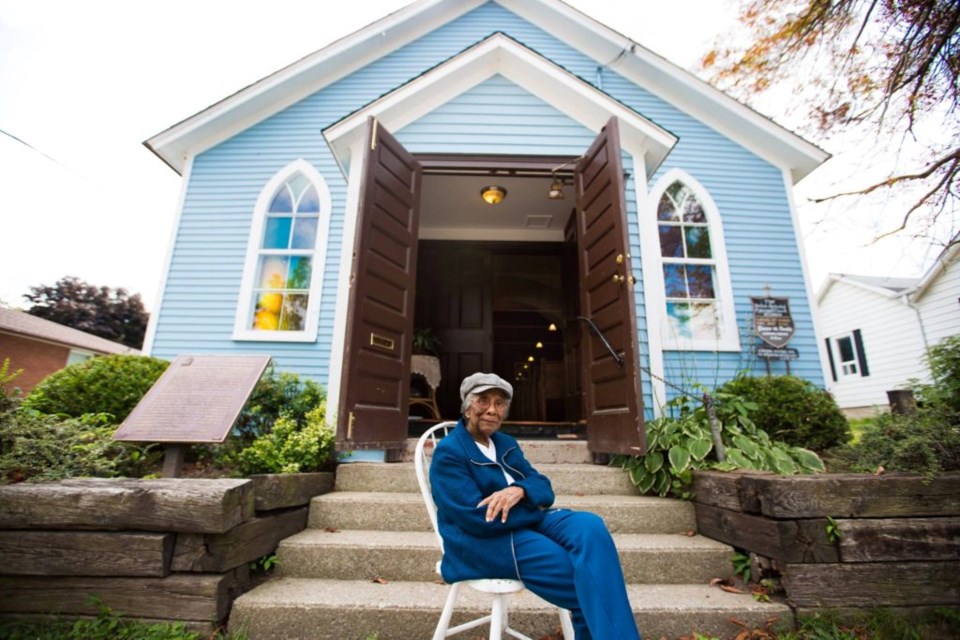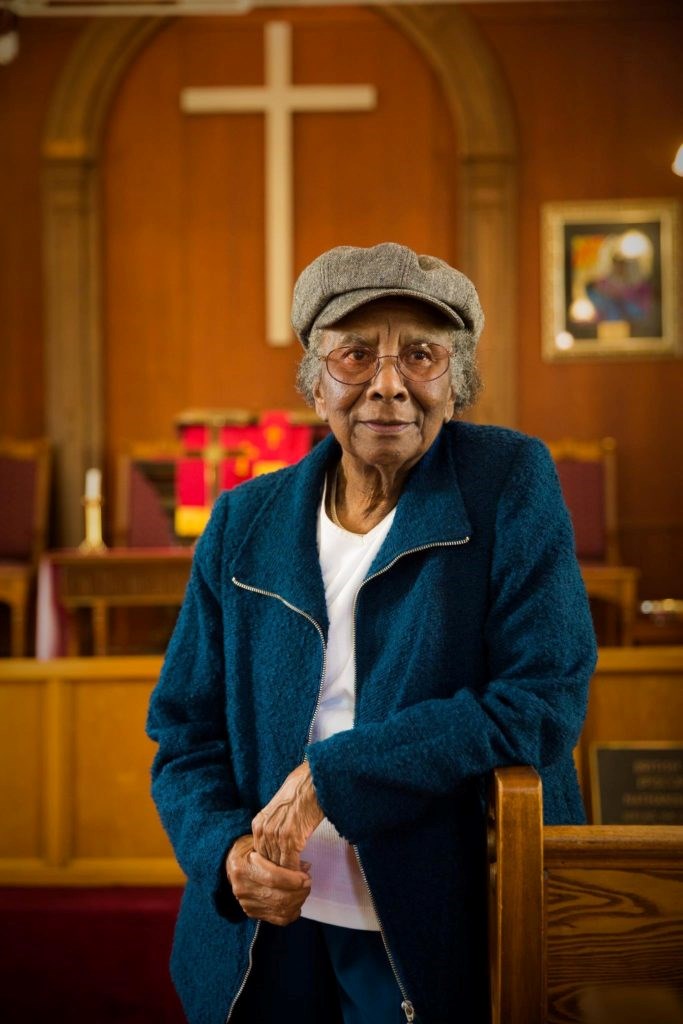
Wilma Morrison was best-known across the Niagara Region for her tireless efforts to educate the public about local Black history.
She was a highly respected historian, speaker and educator, but to many, she was also a dear friend, known for her warmth, kindness, humility and sense of humour.
Morrison, 91, died last Thursday, April 23, at the St. Catharines Hospital site, after a battle with COVID-19. She had spent the last year or so living in Lundy Manor in Niagara Falls, where she contracted the disease.
In Niagara-on-the-Lake, two of the people closest to Morrison were Alexis Spieldenner and Chris Mori of Bravo Niagara!
They met her in 2014 at a Niagara Investment in Culture meeting, says Spieldenner. “Wilma gave us a brochure of Niagara’s Freedom Trail, and was eager to share with us the incredible history of the region. Having just recently moved to Canada from the US, we were unaware until then of Niagara’s significant Black history. Meeting Wilma changed the trajectory of Bravo Niagara!, and our lives,” she says.
At that point, Bravo Niagara was a fledgling organization that had presented only a couple of concerts, “but with her encouragement, we decided to create the Voices of Freedom Festival in 2015. Wilma was instrumental in guiding us and supporting us every step of the way.”
The mother and daughter duo behind Bravo Niagara! spent many hours talking with her, learning about Black history, and visiting with her at the Nathaniel Dett Memorial Chapel of the British Methodist Episcopal Church in Niagara Falls, where former slaves were known to gather after escaping to Niagara via the Underground Railroad. Morrison helped save the church from demolition, and also as a result of her efforts, saw it declared a heritage site.
“She was a true trailblazer, and her lifelong dedication to preserving and sharing this important part of Canadian history continues to be an inspiration,” says Spieldenner.
Although it was Morrison’s knowledge of Black history that initially brought them together, over the years, says Spieldenner, “Wilma also became a great friend and mentor. I’m so grateful for the time we were able to share with her. Wilma had a beautiful spirit and a heart of gold. She and my grandmother shared the same birth year, and I always felt a special connection to her. Wilma was incredibly kind, full of love, and had a great sense of humour.”
Added Spieldenner, “we were so distraught to hear about the outbreak at Lundy Manor in Niagara Falls. We are heartbroken to lose such a dear friend and mentor.”
Lord Mayor Betty Disero worked with Morrison on the establishment of the Voices of Freedom park. Morrison was the co-chair of the founding committee.
“I was so disturbed to hear she had been taken to the hospital because of the virus. A relative of hers called from California to let me know,” says Disero.
It’s been an emotional time, with a range of feelings, she says. “It’s so meaningless, so awful. It makes you both sad and angry, everything at one time, because of how this virus is playing out. It’s taking so many loved ones. I was praying she would make it. She was such an inspiration to all of us.”
Morrison had an interesting life, and has accomplished a lot for her culture, says Disero, including what she has done for NOTL.
“We would not have the Voices of Freedom park here today without her.”
She inspired people to “take up the cause,” says Disero. “You look around and ask who can replacer her. That’s a tough question. We have so much rich history in our Black community. It would be a shame if we don’t carry that forward.”
Morrison’s body may have started to fail recently, “but her mind was as sharp as a tack. She was funny, witty, always quick with a response. And she was creative in her thinking. She was also warm, welcoming, and very, very humble. There was a lot of pushing needed to get things done, but she always did it with humility and grace.”
NOTL resident Nancy Butler, a local historian and author of a book on Black history, also contributed to the Voices of Freedom project. She often shared research with Morrison, getting to know her well and considered her a close friend.
Butler was often called on to speak on Black history, “usually because Wilma wasn’t
available,” she jokes, and any money she was paid for speaking was donated to Morrison to help build up her chapel library.
Butler had visited her at Lundy Manor, and says Morrison seemed happy there — happy to have someone cooking her meals, she would say. “I could tease her and she could tease me,” says Butler. “She respected my research and I respected hers. She accepted me and I accepted her. We had a good working relationship — we were kindred souls. And she was always very generous with her time and her knowledge,” says Butler. “She was an amazing person. I’ll really miss her.”
Sarah Kaufman, managing director and curator of the NOTL Museum, worked with her on several occasions. “She was the pillar of Niagara’s Black history,” she says. “It’s hard to imagine what will happen now that she’s gone. She contributed greatly to our understanding of Black history. She was such a wealth of knowledge.”
The museum looked to Morrison for guidance with the Voices of Freedom park, says Kaufman. And in recent years, Morrison has ensured Black history in Canada has been given the attention and discussion it deserves. “She has been one of the museum’s main resources.”
She was a delight to work with, says Kaufman, very warm, kind, and really funny. “Every time I talked to her, she’d make me laugh. And she was so passionate about her work. She wanted people to understand, to know how the Black community contributed to the history of Niagara.”
With plans to expand the museum space, for more exhibits and programs, Black history is one of the subjects to be given more attention, says Kaufman, and Morrison would have been called on to help. There are “a few others,” some who were mentored by Morrison, “who will have to carry the torch and carry on her work.”
That her life was taken by COVID-19, says Kaufman, “is awful. Losing Wilma in such a way, it’s just awful. She’s gone too soon.”
Morrison lost her husband Lorne in 2001.
She leaves many nieces, nephews, great-nieces and great-nephews, several godchildren, and many friends and admirers across Canada and the U.S.
A Celebration of Life service will be held at a later date. Memorial donations to Nathaniel Dett Chapel BME Church, Niagara Falls would be appreciated by her family.
